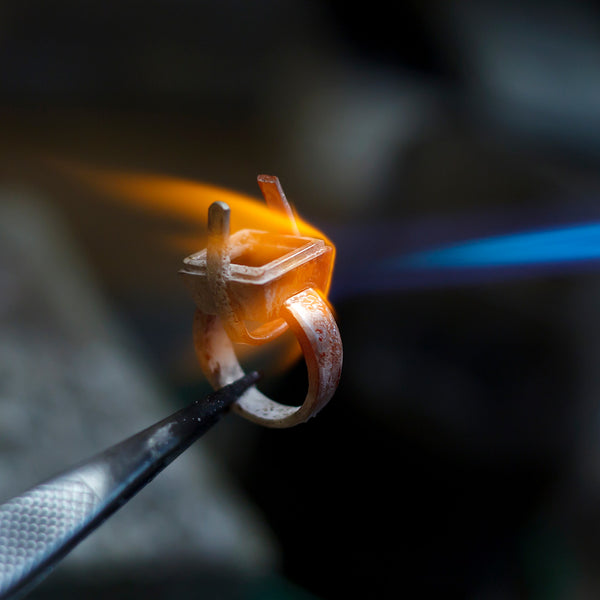The Jewelers' Guide to a Safer Alternative for Alcohol Flux: Navigating Regulatory Changes

The Challenge: Regulatory Constraints on Denatured Alcohol
For jewelers, the art and science of crafting stunning pieces often delve into realms beyond mere aesthetics and design. The technical side, involving soldering precious metal components, demands not only skill but also the right materials. A pivotal component in this process has been the mixture of denatured alcohol and boric acid, utilized as flux to facilitate the smooth soldering of fine jewelry pieces. However, with stringent regulations like those in California, which prohibit the sale of denatured alcohols, jewelers are faced with a daunting predicament: finding a suitable, compliant alternative.
The Potential Risks of Denatured Alcohol
Denatured alcohol, while prevalent in various applications, brings along a bouquet of potential risks, especially when it comes to health and environmental impacts. The chemicals used to denature it often include methanol, a toxic substance that can pose substantial health risks upon exposure or inadvertent ingestion. Moreover, the environmental impact, as well as potential legal ramifications of using denatured alcohol, is creating a critical pivot point for change in the industry.
Enter Culinary Solvent: The Safer Alternative
In the light of these challenges, Culinary Solvent emerges as a promising alternative, especially for jewelers adhering to an eco-friendly and health-conscious ethos. Culinary Solvent’s Alcohol for Hobbyists stands out as a noteworthy option, priding itself on being a safer, all-natural alternative to toxic chemicals found in denatured alcohols.
Crafted meticulously to ensure purity and effectiveness, Culinary Solvent’s offering ensures that jewelers can substitute it 1:1 for denatured alcohol in their flux mixtures without compromising on quality or safety. The absence of harmful denaturants ensures that the user and environmental safety is maintained, while also remaining compliant with strict regulations.
Seamless Integration into Your Crafting Process
Jewelers aiming to blend quality, safety, and eco-friendliness in their work can seamlessly integrate Culinary Solvent into their practices. Using it doesn't require altering your established soldering processes. Just replace denatured alcohol with Culinary Solvent at a 1:1 ratio in your current procedures. The combination of boric acid and Culinary Solvent effectively acts as a flux, facilitating neat and sturdy soldering, and helps you avoid the risks and regulatory issues linked with denatured alcohols.
Quality, and USDA Certified Organic
The availability of a USDA certified organic option amplifies Culinary Solvent's commitment to eco-friendly solutions. For the conscious jeweler, integrating this option into your craft not only aligns with ethical and sustainable practices but also ensures your creations are intertwined with the purity of nature. The certified organic ethyl alcohol, distilled from 100% organic corn, delivers an unmatched level of purity and an assurance that your flux is devoid of synthetic byproducts and pesticides. This adherence to utilizing quality, organic ingredients in your jewelry-making process not only furthers your brand’s sustainability initiatives but also appeals to a growing demographic of consumers who prioritize organic and eco-conscious products. It’s a nuanced approach to jewelry creation, intertwining quality, safety, and sustainability seamlessly into every piece crafted.
Your Path to Safer Soldering Starts with Culinary Solvent
Every jewel crafted not only reflects the skill and creativity of the artisan but also the quality and safety of the materials employed in its creation. By opting for Culinary Solvent, you choose to align your creations with a brand synonymous with quality, safety, and environmental responsibility.





